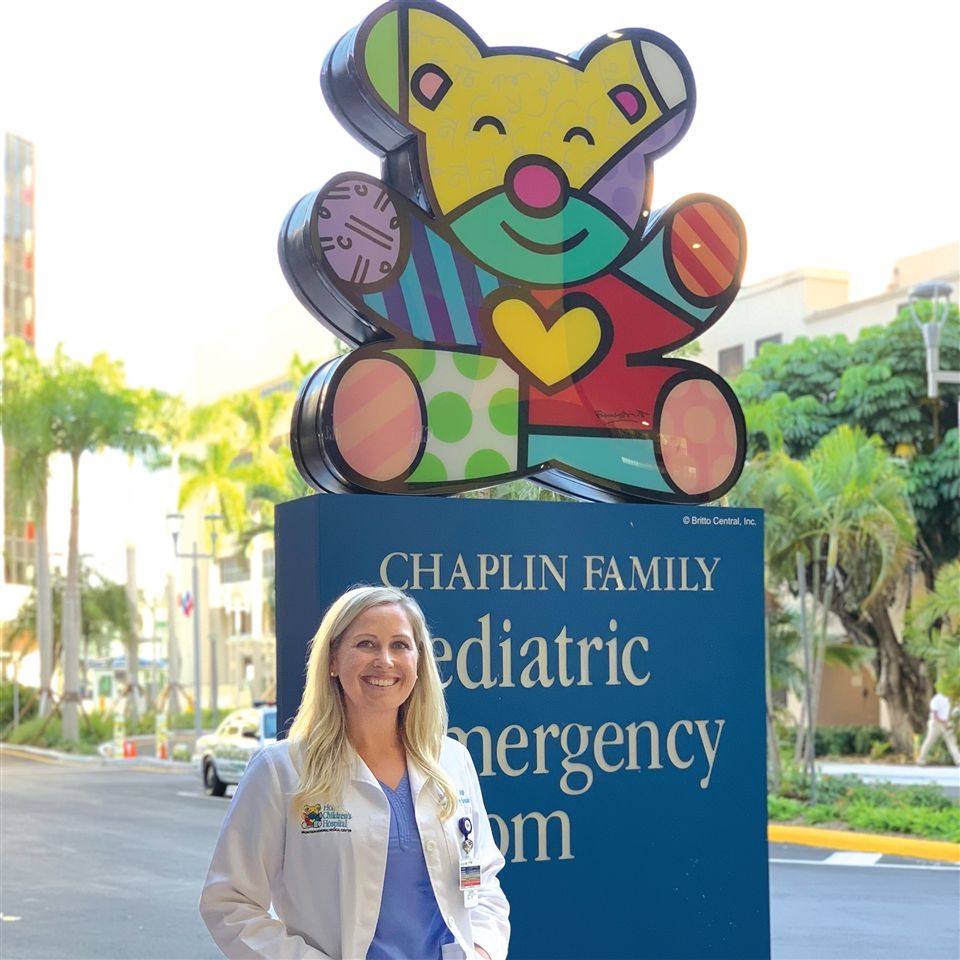Lauren Uscinski, DNP, APRN, PPCNP-BC, CPHON®, '05
Advanced Practice Nurse
Although she knew early on that she wanted to enter a science-related field—Sacred Heart's focus on women in the sciences and, in particular, the Biotechnology and Ethics class taught by Sr. Mary Jane Paolella, ASJC, '65 left a major impression on her—Lauren Uscinski thought that her future lay in becoming a physician. "But my mom kept nudging me also to look into nursing and I eventually realized that the advanced practice role could be a perfect fit. Nurses are trained from day one to see the patient as a whole person."
After obtaining a degree in biology from Wake Forest University, and while applying to nursing programs, Lauren worked at Yale's Smilow Cancer Hospital, where her fascination with oncology began. Although she entered Yale School of Nursing on the oncology nurse practitioner (NP) track, pediatric hematology/oncology “clicked” for her, and she switched to the pediatric NP program. She also has a doctor of nursing practice (DNP) degree from the University of Miami.

Around the time she was accepted to Yale, Lauren's dad was diagnosed with non-Hodgkin's lymphoma. "During my Saturday rotations," she says, "I spent time with him on Smilow's transplant unit before returning to take care of my patients. While the experience was difficult, it solidified that I was where I needed to be, doing what I needed to be doing."
Upon graduating from Yale, Lauren went to work as an NP in pediatric neuro-oncology at Miami (now Nicklaus) Children's Hospital. She then took a position in the pediatric bone marrow unit at Miami's Holtz Children's Hospital, and has been clinical transplant nurse practitioner there since 2014. Her patients range from the youngest children to young adults up to 21. Most have a cancer diagnosis, but bone marrow transplants are also a treatment option for conditions like sickle cell anemia and immunodeficiency syndromes.
With an average patient stay of about six weeks, Lauren says that patients and their families can become like family to the staff, creating both the most difficult and the most rewarding parts of Lauren's job. "We are all acutely aware that we have little lives on the line," she says. "When patients don't make it, going back to work the next day can be difficult. But we also get to celebrate when they go home to live their lives, and when we get updates that someone celebrated a milestone birthday or graduated from college."
Lauren notes that relating her own experience—her dad needed a second bone marrow transplant a few years after the first—helps patients open up to her, especially at the most difficult times. "Transplant is a highly complex and rapidly evolving field," she says "and I have learned to become a better advocate for the nursing profession and my patients. They know that I know what they are going through, and they can let me offer them hope."


